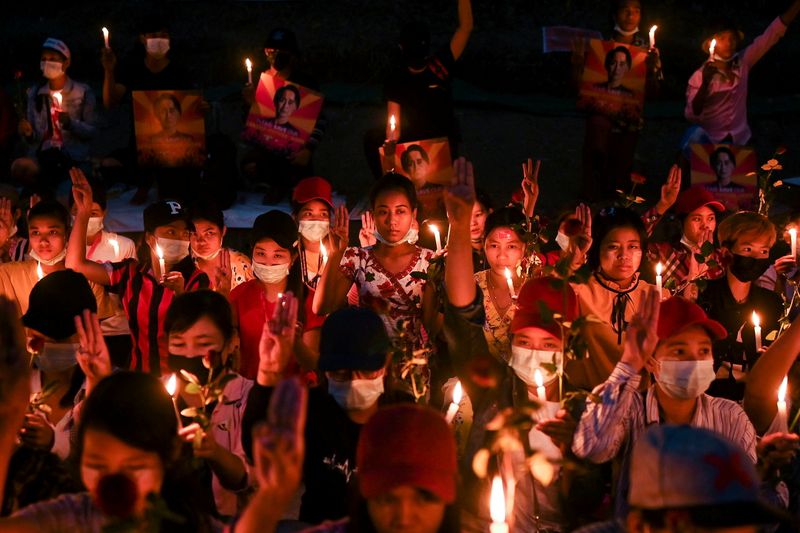
Hundreds of people were arrested from homes in the middle of the night or on the streets during protests. Experts fear there might be expansion in the number of prisoners, since Myanmar’s Military Coup.
According to the Assistance Association for Political Prisoners, a Myanmar-based organization, as of Tuesday, some 696 people including monks, writers, activists, politicians and others has been arrested in relation to the coup.
Many of those arrested were charged using a legacy of laws some dating back to British colonial times and others under previous military regimes that have been used against critics by every government, including Aung San Suu Kyi’s National League for Democracy party, which was ousted in a coup that took place on February 1st.
While the military continues to use and amend old laws to crack down on dissidents , new laws are being introduced as well, signalling the military’s intent to continue arresting protesters.
Hundreds who have been arrested since the coup joined the already hundreds of political prisoners in the country who were imprisoned both under the previous junta and the National League for Democracy, or NLD.
Before democratic reforms eventually took place a period during which Suu Kyi was released from house arrest, her political party agreed to participate in 2012 by-elections and press censorship was softened Amnesty International estimated that Myanmar had more than 1,000 political prisoners, calling it one of the highest of such populations worldwide. In the years following Suu Kyi’s 2010 release from house arrest, a prisoner amnesty led to the freeing of thousands of inmates, including some 200 political prisoners, while others remained incarcerated. For many observers, this signaled hope for further reforms, a view bolstered when Suu Kyi’s party took power following a landslide victory in 2015 elections. But hope quickly dissipated in the years that followed, as repressive laws widely stayed on the books and political prisoners remained without official recognition. The lack of repealing hard criminal codes left some free-speech and other activist groups upset in Myanmar, but really didn’t impact how many in the West interacted with Aung San Suu Kyi or her government.
What the military is trying to do is use the laws to add some legitimacy to their illegitimate grab for power and the NLD gave them an opportunity to do that by leaving old laws intact, he added. But there’s also no question that if these laws didn’t work for the military, they’d still find other ways of arresting people.
Since this month’s coup, the military has also amended old penal codes and proposed new laws that experts say could be used as further tools to crack down on dissidents.
For example, amendments made on February 14 to the country’s Penal Code sections on High Treason state that people can be sentenced to up to 20 years for planning to hinder the success of defense or law enforcement.
A controversial proposed cybersecurity law demands the elimination of online comments considered to be misinformation or disinformation that might cause hate or disrupt stability, and any comment that might violate any existing law. Those who are deemed to break the law can be sentenced to up to three years in prison.
